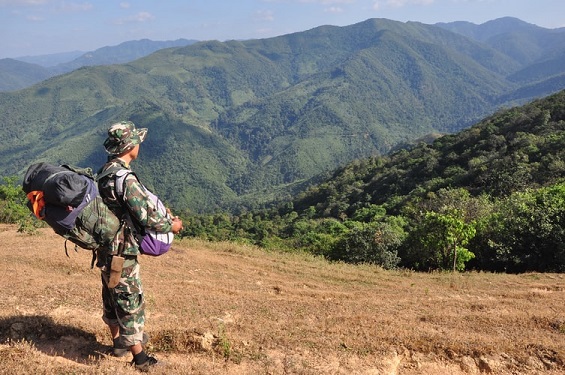Myanmar’s massive new wave of COVID-19 infections has put Thai health authorities on high alert. Although the new wave originated across the country in Rakhine State, Sophon Iamsirithavorn, director of Thailand’s Division of Communicable Diseases told the Bangkok Post that his department feared the epidemic will “soon threaten the (Myanmar) eastern border.” He said that stringent measures have already been made to shore up the land border.
Demarcated by the shallow Moei River, the Thai-Myannmar border has historically been rather porous, with unofficial immigrants and cargo passing more or less freely. Since the COVID-19 pandemic began, however, both countries have tightened security, closing down most of their land portals. The economies of border towns and the coffers of land export merchants suffered under the new restrictions, however an apparently slow spread of COVID-19 had prompted new hopes that ordinary trade would soon resume. The new wave, in which Myanmar’s confirmed cases have quadrupled in less than one month, means border restrictions will likely remain tight for the foreseeable future.
Despite the pandemic, trade between Myanmar and Thailand, as well as other ASEAN nations, has remained surprisingly high. According to August data from the Ministry of Commerce, Myanmar has exchanged USD 3.9 billion worth of goods so far this fiscal year. Yet, as Thailand’s apprehension shows, a new coronavirus wave could threaten these gains.


